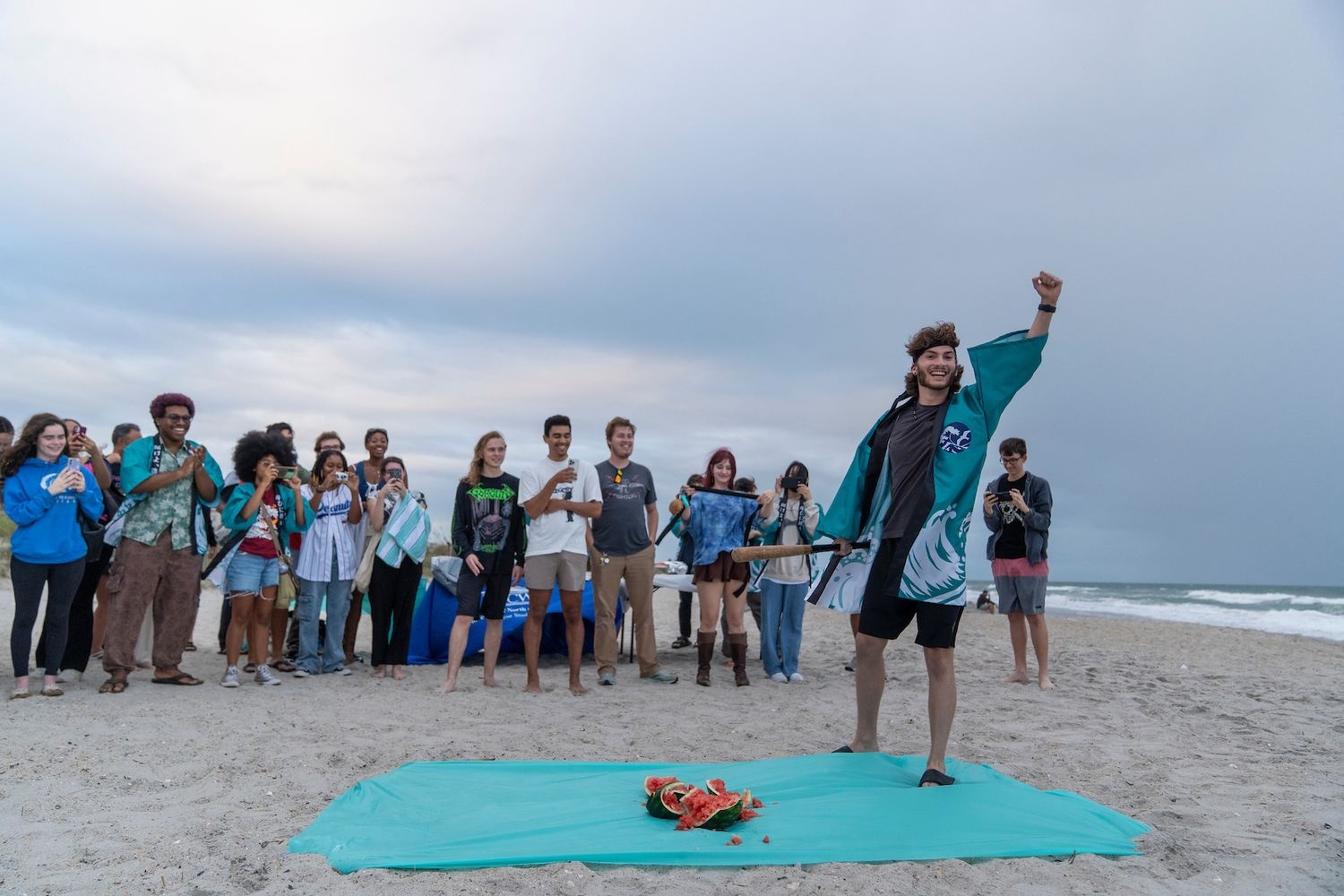
Photo: Michael Spencer/UNCW
Whether it’s for the seasonal celebrations, good food or unique traditions, the UNCW community and greater Wilmington area both have an enthusiastic appetite for Japanese culture.
Take the autumn moon-viewing festival, which has become a yearly off-campus celebration: This October, despite cloudy skies and a chill in the air, more than a hundred students flocked to Wrightsville Beach to smash watermelons and snack on dango, sweet rice dumplings, faster than volunteers could hand them out.
Or the Nov. 1 Japanese tea ceremony, where Kana Sahashi co-led experiential learning for small groups alongside volunteers and community partners at the New Hanover County Arboretum.
Sahashi, a coordinator with the Japan Outreach Initiative (JOI) arrived on campus in August from Tokyo and will spend two years facilitating cultural exchange programming for UNCW and the greater community. A few weeks after arriving, she helped students host a Japanese summer tradition called nagashi-somen, serving noodles out of a bamboo waterslide.
Since then, working closely with Assistant Professor of Japanese Ryan Lidster, she’s helped boost the Japan club, lead courses at the Osher Lifelong Learning Institute (OLLI) and will expand the academic pipeline for students pursuing UNCW's Japanese minor.
Lidster said she’ll do so by networking with Japanese-owned companies in the region and American companies in Japan, relaying what skills and abilities they look for in new hires so that students can be better prepared when they apply for those positions.
“The companies benefit by essentially being able to ‘custom order’ new recruits, students benefit by lining up job possibilities, and the university increases its connections with state and local business leaders,” he said.
Sahashi said she didn’t expect so many students to be interested in Japanese culture and wants to give a firsthand perspective that might differ from people’s impressions.
“It’s not that easy to learn other cultures on the internet, but I think an attractive point of this program is that I can teach or introduce Japanese culture directly,” she said.
The tea ceremony — where limited free seats had overbooked within two days — was on Sahashi’s bucket list, and she said she considers herself lucky for it to go so well soon after starting her work. As someone who loves to cook, she said she’d love to organize a cooking workshop to introduce people to Japanese cuisine beyond sushi and ramen.
Lidster said he's looking forward to future events in collaboration with partners on- and off-campus alike.
This article has the following tags: World Languages & Cultures College of Humanities, Social Sciences, & the Arts Arts & Culture Engagement


